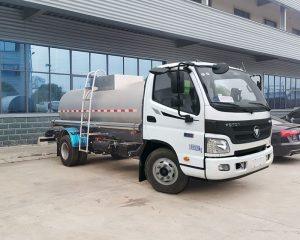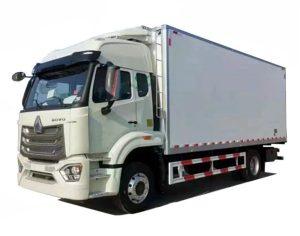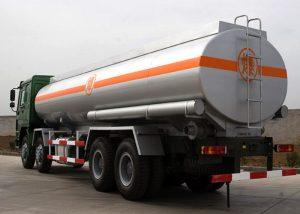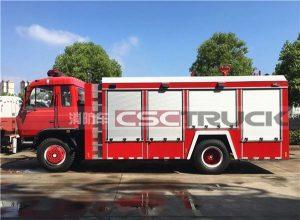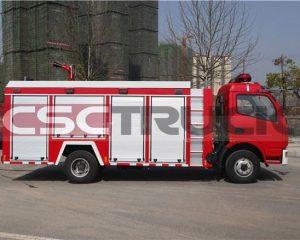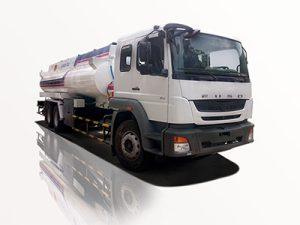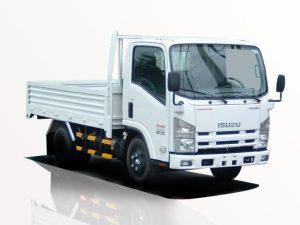Monday to Saturday - 8:00 -17:30
Vacuum Truck Supplies: Essential Tools and Equipment for Efficient Operations
Vacuum trucks have become indispensable in various industries, including waste management, construction, and environmental services. These powerful vehicles require specialized supplies to operate effectively. In this article, we will explore the key vacuum truck supplies that enhance their efficiency, maintain safety, and ensure compliance with industry standards.
Understanding Vacuum Trucks
What is a Vacuum Truck?
A vacuum truck, also known as a vacuum tanker, is a specialized vehicle designed to remove liquid and solid waste. It employs a vacuum system to suck up materials from the ground, storage tanks, or containers. These trucks are commonly used for septic tank cleanouts, industrial cleanups, and stormwater management.
How Vacuum Trucks Work
The operation of a vacuum truck involves several key components:
- Vacuum Pump: The heart of the system, responsible for creating suction.
- Tank: A large container that collects the waste material.
- Hose: A flexible tube that connects the vacuum pump to the area being cleaned.
- Filters: Essential for preventing contaminants from entering the vacuum pump and returning to the environment.
Essential Vacuum Truck Supplies
1. Vacuum Hose
The vacuum hose is the main conduit through which waste is suctioned. Select the right type of vacuum hose based on your needs:
| Type | Specifications | Applications |
|---|---|---|
| Flexible PVC | Lightweight, durable | General waste removal |
| Rubber | Heavy-duty, temperature resistant | Industrial applications |
| Heavy-Duty Polyurethane | Extendable, abrasion-resistant | Rough terrain and rugged use |
2. Vacuum Pumps
Choosing the right vacuum pump is critical for ensuring optimal performance. There are several types of pumps available:
- Positive Displacement Pumps: Great for high-volume applications where waste and sludge must be removed efficiently.
- Rotary Vane Pumps: Known for their durability and silent operation, these pumps work well in various industrial settings.
- Turbine Pumps: Best for transferring liquids at high flow rates, suited for large-scale operations.
3. Tank and Container Options
Vacuum trucks come equipped with different types of tanks. Consider the following variations:
- Polyethylene Tanks: Lightweight, corrosion-resistant, ideal for non-hazardous materials.
- Steel Tanks: Robust and capable of withstanding harsh conditions, suitable for hazardous waste collection.
- Aluminum Tanks: Lightweight yet durable, often used in municipal vacuum trucks.
4. Filters and Separators
Filters play a crucial role in maintaining the efficiency of vacuum trucks:
- Particle Filters: Designed to trap dirt and solids before they reach the pump.
- Oil Mist Filters: Essential for reducing oil vapors in the air during operation.
- Activated Carbon Filters: Used for absorbing odors and harmful gases.
5. Safety Equipment
Safety should always be a priority when operating vacuum trucks. Key safety equipment includes:
- Protective Gear: Gloves, masks, and goggles protect workers from exposure to hazardous materials.
- Emergency Response Kits: Necessary for addressing spills or leaks during operations.
- First Aid Kits: Essential for immediate response in case of injuries.
6. Maintenance Supplies
Regular maintenance is crucial for the longevity of vacuum trucks. Key maintenance supplies include:
- Lubricants: Keep the pump and other moving parts functioning smoothly.
- Seals and Gaskets: Prevent leaks and maintain vacuum integrity.
- Cleaning Supplies: Ensure the truck is kept clean and free of debris.
Tips for Choosing the Right Vacuum Truck Supplies
Understand Your Needs
Evaluate the specific applications and materials you’ll be working with. Heavy-duty materials may require more robust supplies.
Prioritize Quality
Investing in high-quality supplies reduces maintenance issues and increases safety. Look for reputable manufacturers with good warranties.
Compatibility
Ensure that your supplies are compatible with your vacuum truck model. Always consult with the manufacturer for recommendations.
Consider Environmental Compliance
Many industries have regulations for waste disposal. Choose vacuum truck supplies that meet local environmental standards to ensure compliance.
Practical Applications of Vacuum Trucks
1. Septic Tank Pumping
Vacuum trucks are extensively used for septic tank pumping. They efficiently remove sludge and scum, preventing system failures.
2. Industrial Cleanouts
In industrial applications, these trucks are invaluable for cleaning up spills and removing waste. They quickly restore the work environment, enhancing safety and productivity.
3. Stormwater Management
Vacuum trucks play a crucial role in stormwater management by clearing catch basins and preventing flooding caused by debris buildup.
4. Pipeline Maintenance
These trucks are employed for maintaining underground pipelines, removing blockages, and preventing backups that can lead to costly repairs.
Top Brands for Vacuum Truck Supplies
1. Kinsley Power Systems
Kinsley offers high-quality vacuum pumps and accessories, known for durability and efficiency. Their products cater to various industries, ensuring you have the right tools for your needs.
2. Guzzler Manufacturing
Guzzler provides a wide range of vacuum truck supplies including hoses, filters, and tanks, emphasizing user safety and efficiency.
3. Vacuum Truck Engineering
Specializing in engineered solutions, Vacuum Truck Engineering produces custom components tailored to specific operational requirements.
Frequently Asked Questions (FAQ)
What materials can vacuum trucks handle?
Vacuum trucks can handle a variety of materials, including liquids (like water and sewage), sludges, and solid waste. Depending on the truck’s specifications, they can also manage hazardous materials.
How often should vacuum truck supplies be replaced?
Replacement schedules vary based on usage. Regular inspections should be scheduled every few months, especially for hoses and filters, to ensure optimal performance.
Can I use standard hoses with vacuum trucks?
No, it’s essential to use specialized vacuum hoses specifically designed for high suction and pressure to ensure safety and efficiency.
Is training required to operate a vacuum truck?
Yes, proper training is essential. Operators should know how to use the equipment and understand safety protocols to prevent accidents.
What is the average lifespan of a vacuum truck?
The lifespan of a vacuum truck can range from 10 to 15 years, depending on maintenance, usage, and quality of the original components.
Do vacuum trucks require special licensing?
Yes, operators typically need specialized licenses or certifications to operate vacuum trucks, especially if they handle hazardous materials.


